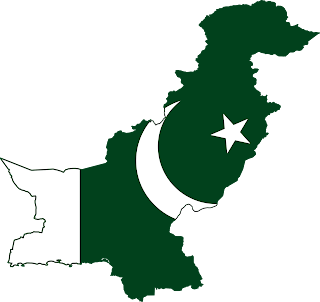In a reminder that user security will be 2016’s bottom line, on November 30, BlackBerry decided the best way to do business with Pakistan would be to not do business at all.
At stake is BlackBerry Enterprise Service (BES), which provides secure email and messaging communications. Pakistan wanted backdoor access to all BES traffic; BlackBerry responded by exiting the country altogether.
“BlackBerry provides the world’s most secure communications platform to government, military and enterprise customers. Protecting that security is paramount to our mission. While we recognize the need to cooperate with lawful government investigative requests of criminal activity, we have never permitted wholesale access to our BES servers,” explained BlackBerry Chief Operating Officer Marty Beard in a blog post.
BlackBerry’s exit is a fitting end to a year that has made Pakistan synonymous with surveillance state. Currently under review is a proposed Prevention of Electronic Crimes Bill (PECB), a document that has accurately been described as “a clear and present danger to human rights.” A joint statement from concerned parties including ARTICLE 19, Human Rights Watch, Privacy International and Pakistan’s Bolobhi and Bytes for All highlighted several flaws of the Bill:
Farieha Aziz of Bolo Bhi, a Pakistani pro-digital security and privacy not-for-profit that has drafted a letter in protest of PECB, was quick to predict that BlackBerry wouldn’t be the only company to resist the draconian Pakistani state. November 29th tweets from Aziz include: “Data demands by govt forcing Blackberry to exit Pak. Yet govt claims Amazon, eBay & PayPal are coming” and “Companies to whom privacy of data and protection of speech matters will be weary of presence in Pakistan. Getting worse, not better.”
Aziz may be right that BlackBerry will be the first of several businesses to refuse to do business in Pakistan, but this also may be one situation that has to get worse before it can get better. In 2016, a surveillance state without business will soon be no state at all.
Want to know more about government infringements of citizens' rights? Read on!
SumRando Cybersecurity is a South Africa-based VPN, Web Proxy and Secure Messenger provider. Surf secure and stay Rando!
At stake is BlackBerry Enterprise Service (BES), which provides secure email and messaging communications. Pakistan wanted backdoor access to all BES traffic; BlackBerry responded by exiting the country altogether.
“BlackBerry provides the world’s most secure communications platform to government, military and enterprise customers. Protecting that security is paramount to our mission. While we recognize the need to cooperate with lawful government investigative requests of criminal activity, we have never permitted wholesale access to our BES servers,” explained BlackBerry Chief Operating Officer Marty Beard in a blog post.
BlackBerry’s exit is a fitting end to a year that has made Pakistan synonymous with surveillance state. Currently under review is a proposed Prevention of Electronic Crimes Bill (PECB), a document that has accurately been described as “a clear and present danger to human rights.” A joint statement from concerned parties including ARTICLE 19, Human Rights Watch, Privacy International and Pakistan’s Bolobhi and Bytes for All highlighted several flaws of the Bill:
- It would enable government to order service providers to remove or block access to any speech, sound, data, writing, image, or video, without any approval from a court.
- It would allow the Federal Government to share intelligence gathered from investigations with foreign spy agencies like the United States National Security Agency, without any independent oversight.
- It would mandate service providers to retain data about Pakistanis’ telephone and email communications for a minimum one year.
- It would enable the government to “seize” programs or data, defining seizing as to “make and retain a copy of the data”, without specifying the procedures by which the seized data is retained, stored, deleted or further copied.
Farieha Aziz of Bolo Bhi, a Pakistani pro-digital security and privacy not-for-profit that has drafted a letter in protest of PECB, was quick to predict that BlackBerry wouldn’t be the only company to resist the draconian Pakistani state. November 29th tweets from Aziz include: “Data demands by govt forcing Blackberry to exit Pak. Yet govt claims Amazon, eBay & PayPal are coming” and “Companies to whom privacy of data and protection of speech matters will be weary of presence in Pakistan. Getting worse, not better.”
Aziz may be right that BlackBerry will be the first of several businesses to refuse to do business in Pakistan, but this also may be one situation that has to get worse before it can get better. In 2016, a surveillance state without business will soon be no state at all.
Want to know more about government infringements of citizens' rights? Read on!
- #Justice4Morocco Postponed, But In Reach
- SumVoices: Problems Without End In Algeria's Internet
- UK's Investigatory Powers Bill: A "Breath-taking Attack" on Internet Security
SumRando Cybersecurity is a South Africa-based VPN, Web Proxy and Secure Messenger provider. Surf secure and stay Rando!


No comments:
Post a Comment